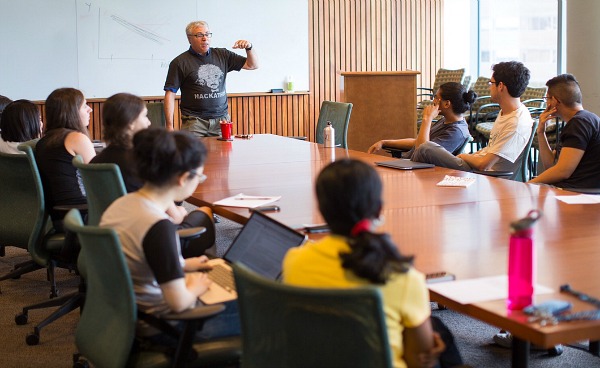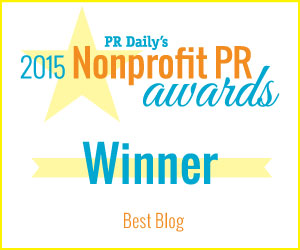
Dr. Nir Barzilai discusses aging research at a pre-hackathon workshop.
One year ago, the National Institutes of Health (NIH) issued a call to fund novel curricular activities to provide enhanced training for the next generation of biomedical scientists, with a specific focus on the skills necessary for conducting reproducible and rigorous (RR) research.
A lack of reproducibility of major studies in biomedical science has been a growing concern, with recent high-profile examples occurring in cancer genomics and pharmacology. There is a consensus that increased attention to computer-programming skills, data analysis and effective communication across interdisciplinary teams would bolster the quality of scientific research.
Embracing a New Kind of Frenzy
In brainstorming ideas for this grant, some members of my lab talked about “hackathons” (round-the-clock events where computer programmers create hacks, or solutions, to intractable problems) that they had recently attended in Manhattan. They returned from these frenzied events physically tired, but mentally energized by the chance to work with new people, gain new skills and help the community by contributing solutions to significant problems.
It also seemed like a lot of fun.
Inspired by my lab’s example, I proposed to run a hackathon as one of the curricular grant events. Given that these events emphasize teamwork, transparent operations and open communication, it seemed a natural way to highlight the skills a researcher needs for RR.
Taking on Aging and Data
The proposal was accepted and the NIH provided funding for Einstein’s inaugural hackathon, “Can We Hack the Fountain of Youth?” The event, taking place on July 24–25, will feature an enthusiastic group of participants from throughout the Einstein community, including Ph.D., M.D. and Medical Scientist Training Program students, staff and faculty. The goal will be to improve the science of aging during the two-day hackathon by having teams come up with their own solutions. They will work to create new computational products (such as mobile apps or software), ideas for research stemming from data analysis or visualizations that help elucidate trends or provide novel ways to look at aging-related data.
There will also be an emphasis on analyzing big data sets. Participants are being encouraged to use these data to delve into research questions, such as “Why do men and women age differently?” But a given team may instead decide, for example, to develop a new app or software program to help improve access to healthcare for the elderly.
The hackathon will conclude with teams pitching their projects to a panel of judges. These pitches will be scored based on the creativity of the idea, the approach and solution to the problem and the degree of technical difficulty of the project. They will also be evaluated on the importance of the question that the team chooses to ask, and the overall significance of the project and its impact on the problem it addresses.
I’m looking forward to coming back and telling you what the hackathon produced.
A Team Effort
An event such as this, which took a year to plan, requires a lot of support. We are grateful that our graduate division of biomedical research has generously offered to host this event, and we’ve had tremendous support from the Einstein community. We’re new to this sport, and we are fortunate to have the assistance and guidance of a guest facilitator, Ami Stuart, who is the tech events manager at Cornell University.
As in any team sport, there will be prizes and souvenirs, but the main goal of our hackathon is for participants to walk away with a better understanding of how to create reproducible knowledge. Given that hackathons focus on teamwork, transparency and open communication, we believe that this event represents a natural opportunity to sharpen and highlight the kinds of skills a researcher needs for rigor and reproducibility.


